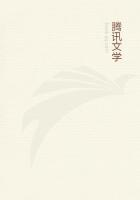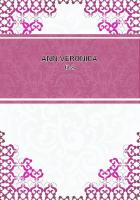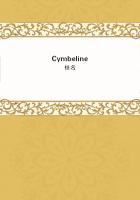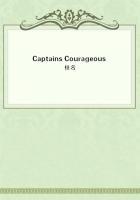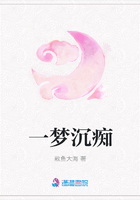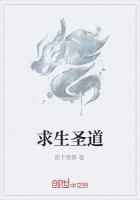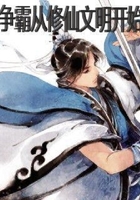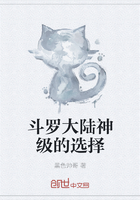Tolstoy alone makes you know how and why it was so with them and not otherwise. If there is anything in him which can be copied or burlesqued it is this ability of his to show men inwardly as well as outwardly; it is the only trait of his which I can put my hand on.
After 'The Cossacks' I read 'Anna Karenina' with a deepening sense of the author's unrivalled greatness. I thought that I saw through his eyes a human affair of that most sorrowful sort as it must appear to the Infinite Compassion; the book is a sort of revelation of human nature in circumstances that have been so perpetually lied about that we have almost lost the faculty of perceiving the truth concerning an illicit love. When you have once read 'Anna Karenina' you know how fatally miserable and essentially unhappy such a love must be. But the character of Karenin himself is quite as important as the intrigue of Anna and Vronsky. It is wonderful how such a man, cold, Philistine and even mean in certain ways, towers into a sublimity unknown (to me, at least), in fiction when he forgives, and yet knows that he cannot forgive with dignity. There is something crucial, and something triumphant, not beyond the power, but hitherto beyond the imagination of men in this effect, which is not solicited, not forced, not in the least romantic, but comes naturally, almost inevitably, from the make of man.
The vast prospects, the far-reaching perspectives of 'War and Peace' made it as great a surprise for me in the historical novel as 'Anna Karenina'
had been in the study of contemporary life; and its people and interests did not seem more remote, since they are of a civilization always as strange and of a humanity always as known.
I read some shorter stories of Tolstoy's before I came to this greatest work of his: I read 'Scenes of the Siege of Sebastopol,' which is so much of the same quality as 'War and Peace;' and I read 'Policoushka' and most of his short stories with a sense of my unity with their people such as I had never felt with the people of other fiction.
His didactic stories, like all stories of the sort, dwindle into allegories; perhaps they do their work the better for this, with the ****** intelligences they address; but I think that where Tolstoy becomes impatient of his office of artist, and prefers to be directly a teacher, he robs himself of more than half his strength with those he can move only through the realization of themselves in others. The ****** pathos, and the apparent indirectness of such a tale as that of 'Poticoushka,'
the peasant conscript, is of vastly more value to the world at large than all his parables; and 'The Death of Ivan Ilyitch,' the Philistine worldling, will turn the hearts of many more from the love of the world than such pale fables of the early Christian life as "Work while ye have the Light." A man's gifts are not given him for nothing, and the man who has the great gift of dramatic fiction has no right to cast it away or to let it rust out in disuse.
Terrible as the 'Kreutzer Sonata' was, it had a moral effect dramatically which it lost altogether when the author descended to exegesis, and applied to marriage the lesson of one evil marriage. In fine, Tolstoy is certainly not to be held up as infallible. He is very, distinctly fallible, but I think his life is not less instructive because in certain things it seems a failure. There was but one life ever lived upon the earth which was without failure, and that was Christ's, whose erring and stumbling follower Tolstoy is. There is no other example, no other ideal, and the chief use of Tolstoy is to enforce this fact in our age, after nineteen centuries of hopeless endeavor to substitute ceremony for character, and the creed for the life. I recognize the truth of this without pretending to have been changed in anything but my point of view of it. What I feel sure is that I can never look at life in the mean and sordid way that I did before I read Tolstoy.
Artistically, he has shown me a greatness that he can never teach me.
I am long past the age when I could wish to form myself upon another writer, and I do not think I could now insensibly take on the likeness of another; but his work has been a revelation and a delight to me, such as I am sure I can never know again. I do not believe that in the whole course of my reading, and not even in the early moment of my literary enthusiasms, I have known such utter satisfaction in any writer, and this supreme joy has come to me at a time of life when new friendships, not to say new passions, are rare and reluctant. It is as if the best wine at this high feast where I have sat so long had been kept for the last, and I need not deny a miracle in it in order to attest my skill in judging vintages. In fact, I prefer to believe that my life has been full of miracles, and that the good has always come to me at the right time, so that I could profit most by it. I believe if I had not turned the corner of my fiftieth year, when I first knew Tolstoy, I should not have been able to know him as fully as I did. He has been to me that final consciousness, which he speaks of so wisely in his essay on "Life."
I came in it to the knowledge of myself in ways I had not dreamt of before, and began at least to discern my relations to the race, without which we are each nothing. The supreme art in literature had its highest effect in ****** me set art forever below humanity, and it is with the wish to offer the greatest homage to his heart and mind, which any man can pay another, that I close this record with the name of Lyof Tolstoy.
End

